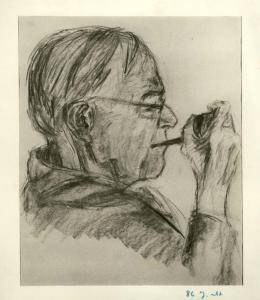“Human righteousness, in whatever form it is found, is a Tower of Babel.”
“Religion—and Barth is here speaking pre-eminently of Christianity—is at its heart, an exercise in self-delusion.”
 -Bruce McCormack, on Barth’s theology[1]
-Bruce McCormack, on Barth’s theology[1]
This is hard teaching, who wants to hear it? The first clause (above) conditions the second in Barth’s theology. He is referring to the role that human subjectivity plays in the construction of religion. We create expressions, settings, bells and whistles, verbiage, pews, cathedrals, flying buttresses, smiles (even while in agony), so on and so forth. In the end, do any of these things bring us close, or closer to the living God? As Barth would rightly say: Nein. The only reality that brings us into union with the triune God is indeed the triune God for us in Jesus Christ. These other constructs, while part of sociological reality, in themselves have no bearing on whether or not we have become participants with Christ in the bosom of the Father. They reflect instantiations of various periods of culture and development in the history of the Church, but in themselves are not the Way, the Truth, and the Life. They might give us a sense of individual and even corporate transcendence, vis-à-vis God, but these are feelings, that apart from the concrete ground of God’s life for us in the humanity of Jesus Christ, are simply ethereals floating around in our navels, and potentially as high as the clouds above our collective heads.
[1] Bruce L. McCormack, Karl Barth’s Critically Realistic Dialectical Theology: Its Genesis and Development 1909-1936 (Oxford: Oxford University Press, 1995), 133.
